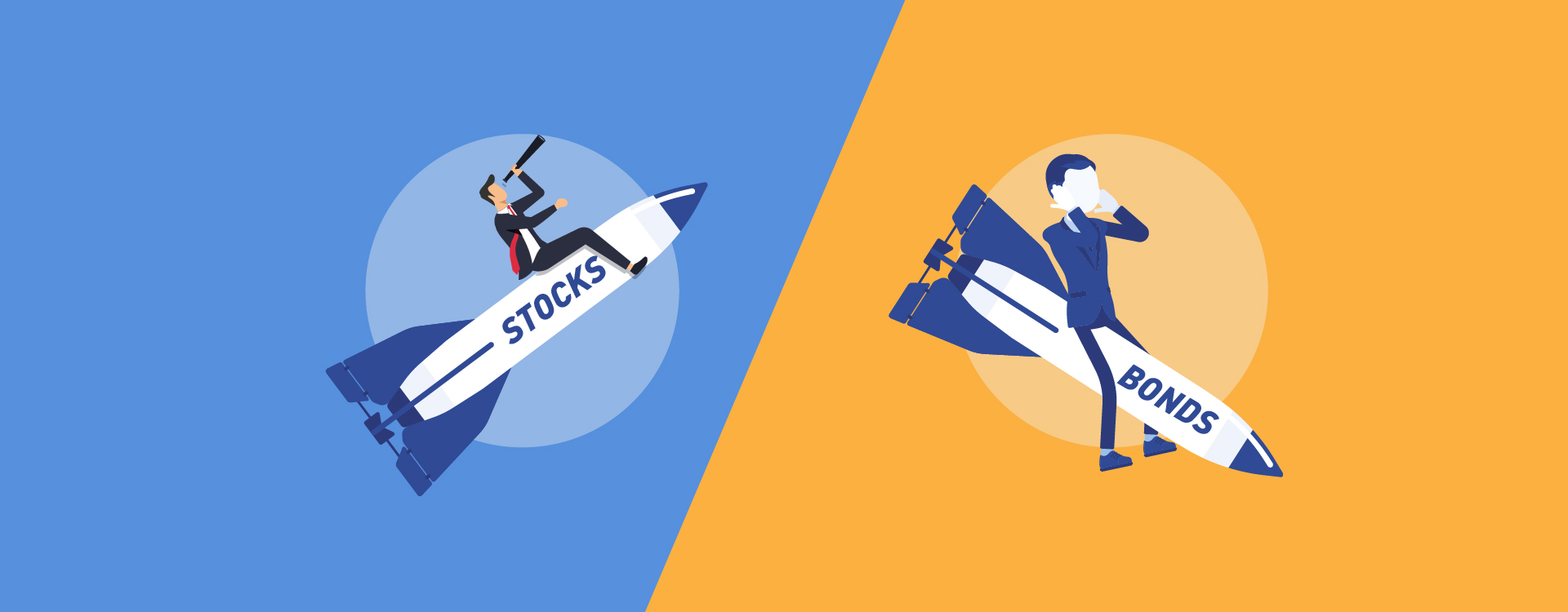By using bonds as your investment instrument, you acquire a guarantee in a debt instrument on which the issuer pays interest to you – the holder – or the principal is delivered at a later date. In bond investments, regular allowances are paid to you by the issuing entity semi-annually, annually and sometimes monthly.
Bonds make external assets available to borrowers to support long-term investments or, in the case of government bonds, to provide cash flow. Bonds and stocks are both instruments in the market, but the main difference is that the shareholders own parts of a company by its stocks. On the other hand, bondholders have a creditor stake in the company as they are lenders.
Economy and stock-bond relation
Economic conditions are essential in determining the status of these financial instruments. As the economy grows, stocks become more profitable as companies keep pace with economic growth. This is because as they increase their income, they add stock value. If the economy is contracting, bonds are a better investment as they will protect your investment while providing a steady income.
‘‘
Bonds are not entirely risk-free. If the company goes under during the bond period, you can stop receiving interest payments and might not get back your entire principal.
Market relation with stocks and bonds
Bonds influence the stock market by competing with shares for investors’ money. Bonds are safer than stocks but have low yield outcomes. This causes bonds to fall as the value of stocks rise (when the stock market is up).
One of the best ways to counter inflation (price rise) is selling bonds and buying stocks when the economy is good. But if an economy slows, consumers shrink, corporate profits fall, and stock prices stoop as well. This is when investors choose the regular interest payments guaranteed by bonds.
Sometimes the value of stocks and bonds can rise at the same time. This happens when there is too much capital or liquidity in the investment market. There are also times when both stocks and bonds fall. In such a situation, investors panic and sell most of the financial assets which they deem risky. During such times, gold prices often rise.
Bond or Stock – which is better for you?
Depending on your personal goals, either bonds or stocks can be the right investment avenues for you. Bonds are for you if you don’t want to pay regularly and worry about inflation; otherwise, stocks are the way to go.
A sound investment plan is based on the diversification of investment, that is, not putting all your eggs in one basket. This means you should always mix stocks and bonds in your investment group. Diversity of investments can play an essential role in reducing risk over time. You can change the combination and allocation of financial assets based on your business cycle and financial goals.




